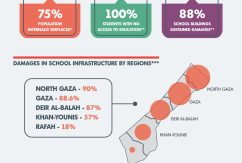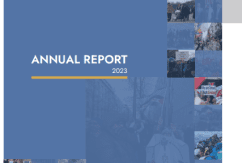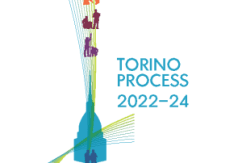Syrian Inas Hakki recognised by the Samir Kassir Award
The 18th edition of the Samir Kassir Award for Freedom of the Press, a competition organised by the Delegation of the European Union and the Samir Kassir Foundation, has once again turned the spotlight on the champions of journalism. The winners included Inas Hakki, a Syrian film director and writer now living in France. Her career, marked by resilience, and her recent triumph tell a powerful story that resonates well beyond any borders.
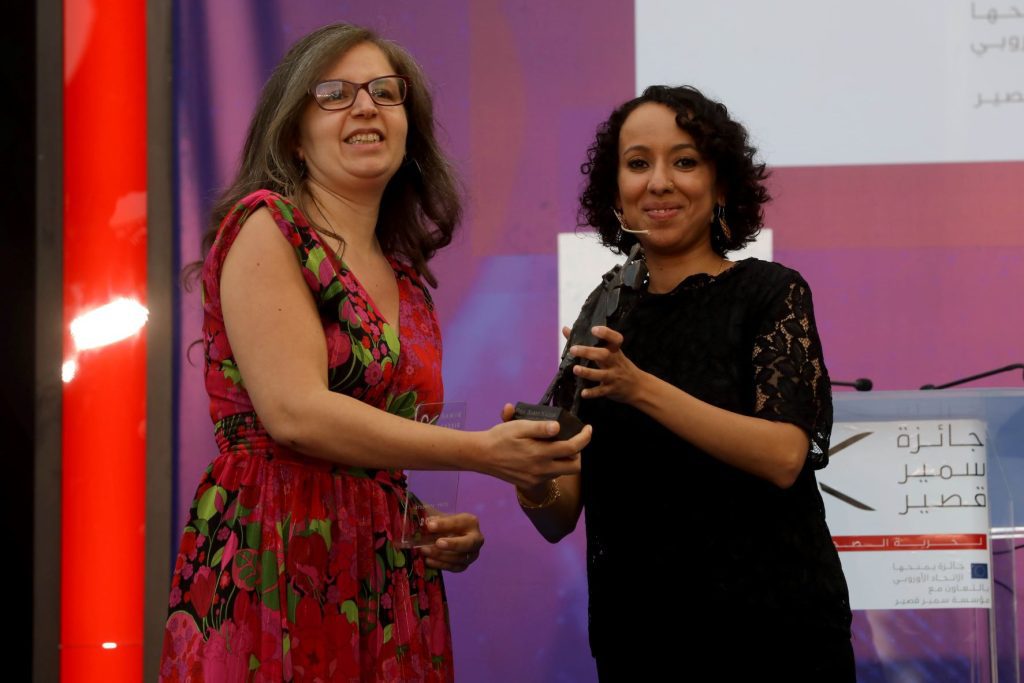
Inas was born in 1984 in Mayadine, a town nestled in the north-east of Syria. Her early years were spent in the vibrant heart of Damascus, where she nursed her dreams and took her first steps in the world of work. However, the war that engulfed her country of birth forced her into an odyssey of survival and exile, first in Lebanon and then in France, where she found refuge with her small family. Inas won the Samir Kassir Award for Freedom of the Press in the Opinion Piece category. Published on the website Raseef22, her Open Letter to Jackie Chan is a true cry from the heart of a Syrian who has powerlessly witnessed the destruction of her country. Through her pen, Inas describes Syria in ruins and the loss of family and friends, and talks about the difficult decision to take the path of exile.
Jackie Chan and a heartfelt lament for the lost beauty of Syria
With a tone of indignation, Inas explains: “Jackie Chan made a film that included scenes shot in the al-Hajar al-Aswad neighbourhood of Damascus. The portion filmed in these places tells the story of Chinese citizens who had to flee their city engulfed in flames. Jackie Chan had said that his production company had been able to rent the whole al-Hajar al-Aswad quarter quite cheaply in order to film there.” Her voice full of passion, she says she was outraged by these comments about such a lovely neighbourhood being reduced to being rented in its entirety for a small sum. She says: “This neighbourhood has been ravaged by the war. Its residents have been killed or forced into exile.”
This is why she wanted to evoke the real beauty of this neighbourhood as she remembers it before the devastating war. In her poignant article, Inas paints a striking picture of everyday life in al-Hajar al-Aswad before the war, an existence characterised by simplicity and kindness despite day-to-day worries. She talks about the children playing happily in front of their houses and the women preparing meals, as well as the warmth and hospitality of the families. Inas’s article gives readers a glimpse of a time when this community prospered, before the ravages of the war. In doing so, she provides a brutal reminder of the human cost of conflicts. Her courageous act of confronting a global icon with the hard realities of war, as well as her evocative portrait of pre-war life, not only gave a voice to the voiceless, but also sparked crucial conversations about the responsibilities of artists and film-makers faced with the tragedies of war.
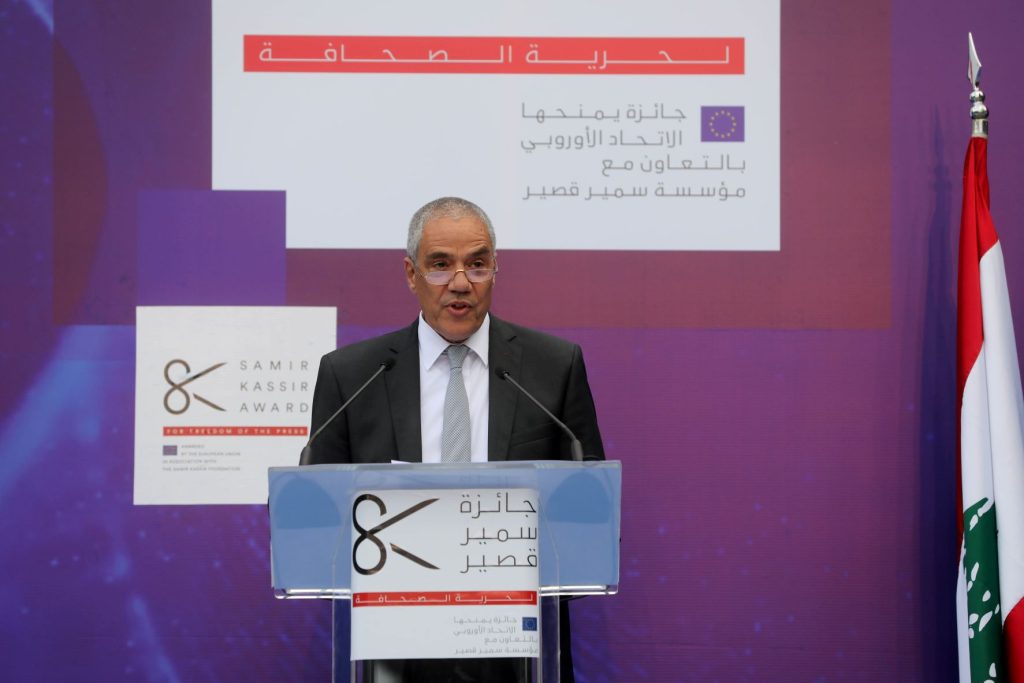

Samir Kassir Award: Defending freedom of expression and shared values
In an interview after receiving the award, Inas shared her thoughts: “To be given the Samir Kassir Award for Freedom of the Press by the European Union in Lebanon is profoundly meaningful to me. This honour defends the very ideals for which Samir Kassir gave his life, particularly equality, freedom and justice in the Arab world.” This notion acquired more weight than ever as the 18th edition of the Samir Kassir Award progressed. Freedom of the press and the right of expression are facing endless challenges, not only in the Arab world but everywhere around the globe.
Ayman Mhanna, executive director of the Samir Kassir Foundation, echoed Inas’s sentiments: “The Samir Kassir Award defends an ideal of freedom of expression by supporting Arab journalists in their daily fight for justice, democracy and freedom of the press.” The award, she said, was a symbol of hope and recognition for journalists who dared to denounce violence, oppression and corruption.
Tatiana Hosny, press and information officer for the Delegation of the European Union in Lebanon, hailed the Samir Kassir Award for Freedom of the Press, calling it “one of the region’s most prestigious journalism prizes”. She stressed its transformative impact, saying: “Since its creation in 2006, it has honoured many young independent journalists in the Middle East, North Africa and the Gulf. It has not only raised the level of investigative journalism, but also provided a platform for journalists facing prosecution or threats in their country of origin.”
“In a landscape where press freedom is restricted or closely monitored”, Tatiana continued, “access to quality journalism has never been so crucial. Journalism prizes such as the Samir Kassir Award offer journalists not only recognition, but also real credibility when they raise their voice.” She emphasised that: The European Union remains steadfast in its commitment to defending and promoting freedom of the press, because we are firmly convinced that a free press is the cornerstone of a flourishing democratic society.”
In Inas Hakki’s story, from the war-torn streets of Syria to the podium of the 18th Samir Kassir Award for Freedom of the Press, we find a testimony to the power of resilience and the unswerving pursuit of truth. This award, a glimmer of hope in an increasingly difficult journalistic landscape, embodies the ideals for which Samir Kassir sacrificed his life. In Inas Hakki’s triumph, we see the transformative power of the written word, the ability to illuminate the darkest corners and inspire change. Her journey reminds us that the perennial mission of journalism is to ensure that the voices of those who have no voice are heard, and that in the quest for truth we find the path to freedom.
The Samir Kassir Award, created and financed by the European Union, is the flagship annual event for freedom of the press and the most prestigious journalism prize in North Africa, the Middle East and the Gulf countries. The award ceremony has been organised every year since 2006, to commemorate the assassination of the Lebanese journalist Samir Kassir on 2 June 2005 in Beirut and to celebrate his life, his values and his memory. https://samirkassiraward.org/en/Home








